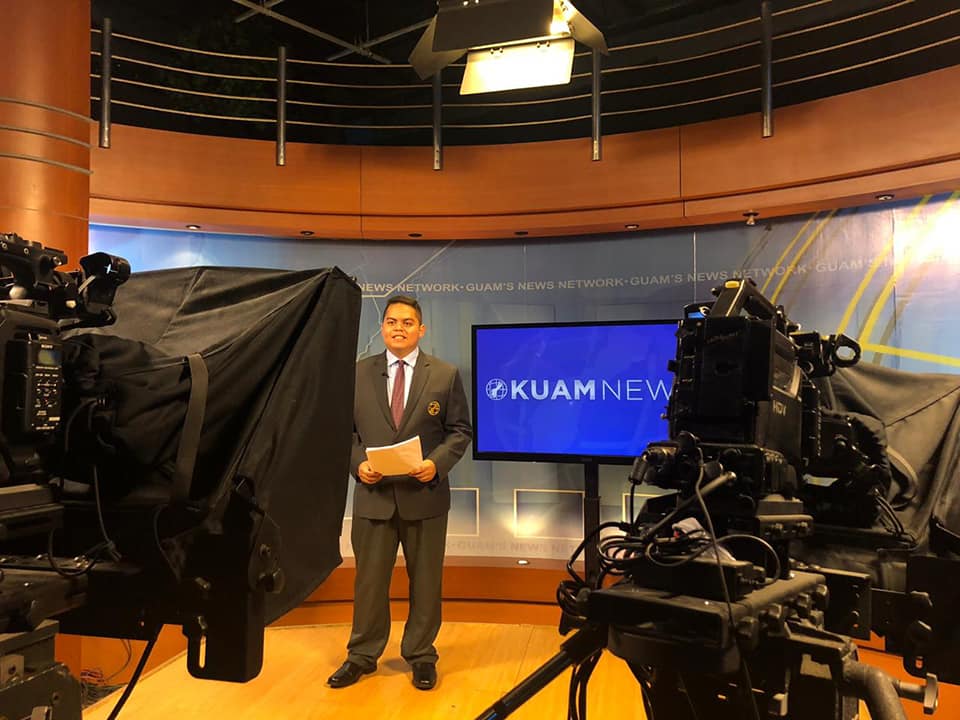We are thrilled to feature Thomas Mangloa II. Thomas was selected as a Truman Scholar in 2019. Visit here to learn more about the Truman Scholarship.
1) Can you share some of your reasons for wanting to apply for the Truman Scholarship?
I applied for the Truman scholarship because I believe journalism is a public service, especially for my community in the U.S. Territories of Guam and the Commonwealth of the Northern Mariana Islands.
I recently found an interview transcript from 1997 where my grandfather Prudencio Manglona was interviewed by a researcher who asked in part what his thoughts were on the U.N. visiting mission going to my home island of Rota. In the interview, my late grandfather said: Well, its nice to see important people coming to the island. Very rare to see that. So, at least somebody came. No reporter, no newspaper, and no others talked about our problems. So, at least those concerned about the welfare of the people we could try our best to tell anybody that came here about our problems. We talked about our problems so that they can let other people in the responsible authority know about our suffering here.
I see my reporting as part of my family’s lineage. I feel as though I am answering the call my grandfather made in 1997, one year before I was born.
2) How did going through the process of applying for the scholarship help you?
Going through the process was difficult at first because of the nomination and finalist selection protocol that varies by college/university. However, with the help of Alicia Hayes at the office of Undergraduate Research and Scholarships, I was able to complete the process with relative ease.
3) What assistance did you receive?
The Truman campus representative, Alicia Hayes, took the time to speak to me well before the application opened, while I was applying after I submitted my application, and in the days leading up to finalists notifications. I would not have received the Truman Scholarship without her guidance. She helped me ground my responses with advice and wisdom from her years of experience. Most of all, Alicia assured me that I would be okay no matter the outcome and that my motivations were valid either way.
4) What path did you take after leaving Cal? What are you doing now, and how long have you been at it?
Immediately after graduating, I worked as a TV reporter for KUAM News based on Guam, reporting from the Northern Marianas on the COVID-19 pandemic. I drove across the island of Saipan every day with my camera and microphone in hand to attend government meetings, ask questions at press conferences with hospital officials, and meet people in the community to hear their stories. I left home to pursue a year-long M.A. in Journalism from Stanford University a few months after graduating in an online ceremony at Cal. I just recently wrapped up a summer internship with ABC News/Good Morning America in New York and was named a Nia Tero Storytelling fellow, which provides financial support and mentorship for Indigenous media makers. Starting in September, I will be the Senior Digital Producer and Regional Correspondent for KUAM News on Guam, but I will be splitting my time on the different islands in Micronesia to highlight stories from under-covered communities in the region.
5) What advice would you offer to prospective applicants?
-
-
Have a clear public service mission.
-
-
-
Be knowledgeable in your field and its related policy.
-
-
-
Take a look at past finalists and winners from your region and college. Reach out to them!
-
-
-
Give yourself grace in the process, which includes staying true in telling your story.
-
